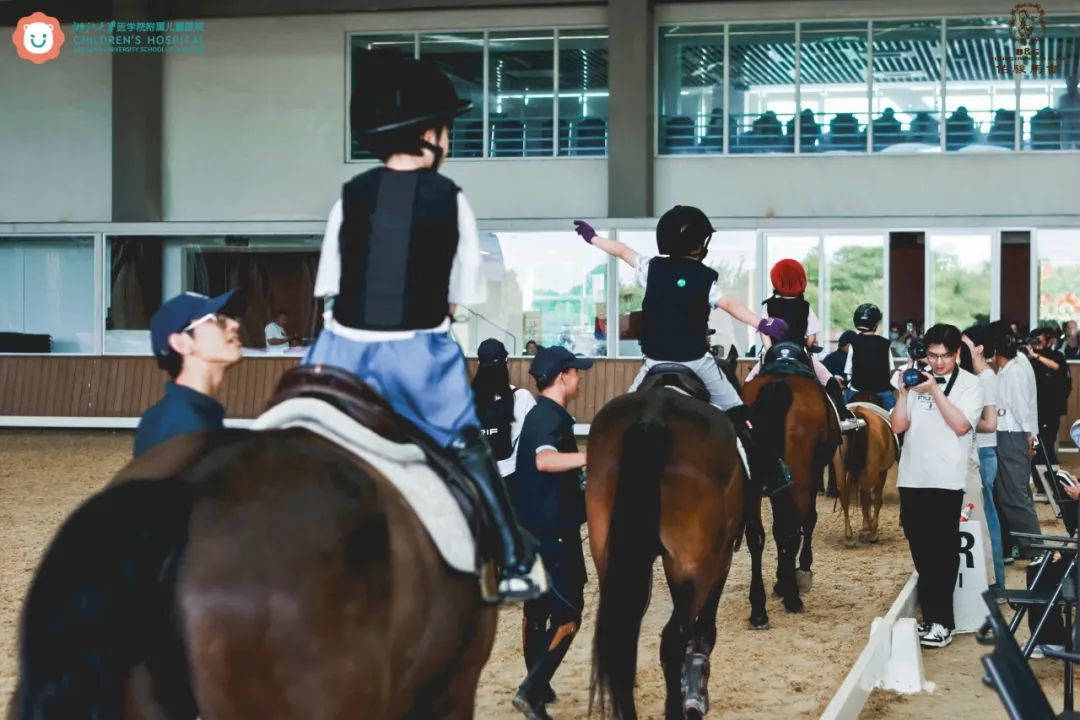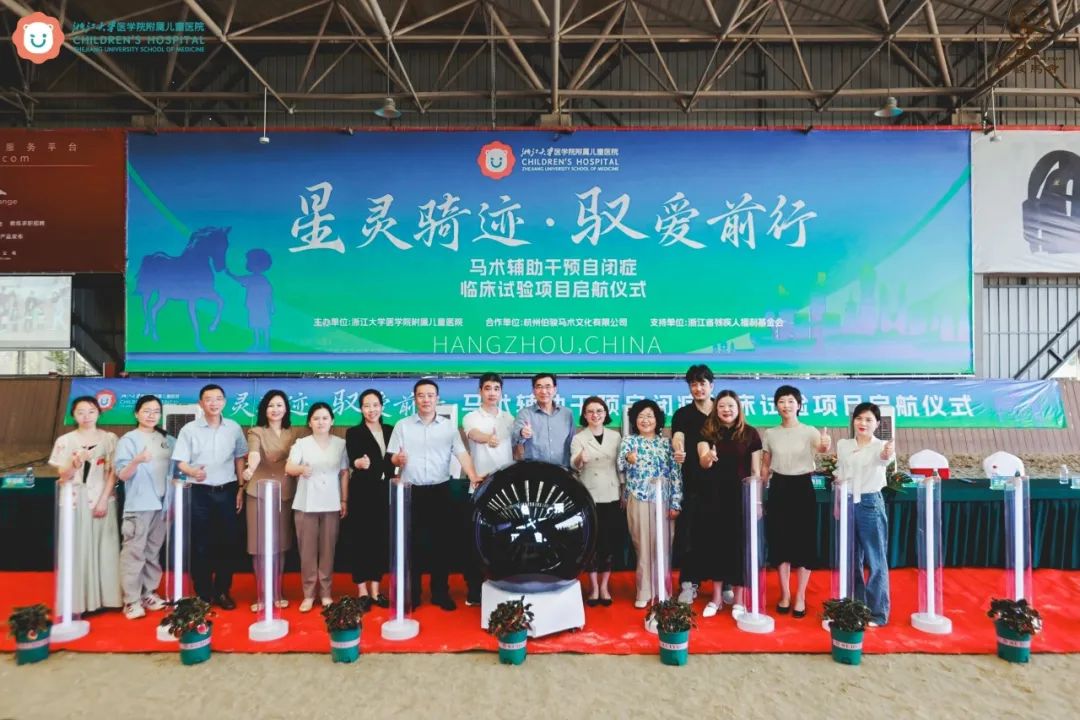ZCH Uses Equestrian Therapy to Assist in the Treatment of Autism
On the afternoon of June 5, five autistic children started a unique rehabilitation journey at a Hangzhou suburban racecourse. Under professional guidance, they took part in equine-assisted training, with smiles lighting up their faces, making it hard to tell that they are children with autism.

This "Horseback Healing" project is led by Children’s Hospital of Zhejiang University School of Medicine. It gets support from Zhejiang Disabled Persons' Welfare Foundation, Yuhang District's Renhe Sub-district, and Bojun Equestrian Club, a provincial youth equestrian training base. Professor Shu Qiang, Chairman of the hospital, noted that childhood autism incidence is rising globally, becoming a severe public health challenge, and the project aims to explore new therapies via scientific research to bring hope to more families.

Li Haifeng, the hospital's rehabilitation department director and project leader, explained that equine therapy uses horses' rhythmic, human walking-like movements and human-horse interaction to improve children's sensory integration, balance, coordination, and social skills. It's a precise, evidence-based neural remodeling process, not just a casual riding experience. This is China's first large-scale randomized trial on equine therapy for autism, filling a domestic gap. It will assess the therapy's effects, offer a "Chinese solution" for international research, and build cross-sector cooperation.
The project will recruit 5-6 batches of children for 2-hour sessions twice a week. Safety is top priority, with careful matching and constant monitoring. It also aims to develop systematic curricula and industry standards for such therapy. After the launch, observers saw children focusing on leading horses and doing exercises, gradually gaining confidence and joy – a promising step toward opening up to the world.




